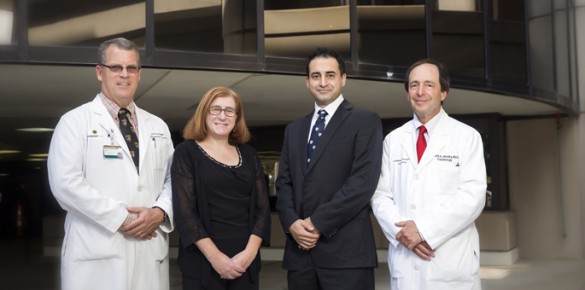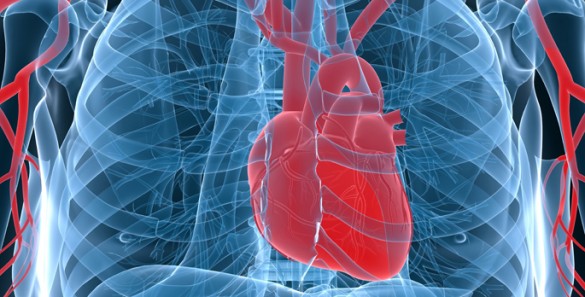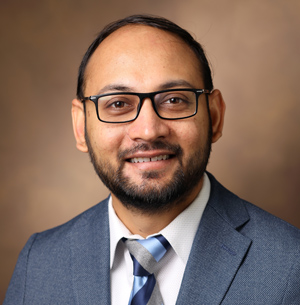
Vanderbilt is embarking on an observational study to define and understand how a promising treatment for multiple myeloma affects the heart.
The Prospective Observation of Cardiac Safety with Proteasome Inhibition (PROTECT) trial capitalizes on the collaborative relationship between Vanderbilt Heart and Vascular Institute and Vanderbilt-Ingram Cancer Center, with the goal of managing cardiac toxicity to allow cancer patients to continue with their treatment.
Multiple myeloma is a type of cancer that begins in plasma. When there is more than one plasma cell tumor it is called multiple myeloma. In 2014, there were more than 24,000 cases of multiple myeloma diagnosed in the United States.
In recent years, proteasome inhibitors (drugs that stop certain proteins from breaking down other proteins that keep cell growth under control) have emerged as important options for treating multiple myeloma.
“The proteasome has an important function in the myocardial cell, so inhibiting the proteasome at a sufficient enough level could potentially affect the cardiac system,” said Daniel Lenihan, M.D., director of the Cardiovascular Clinical Research program and principal investigator for the PROTECT study.
“These proteasome inhibitors are newly developed therapies for myeloma, and they look like they are starting to have a major impact. So, we have a drug that is extending the lives of those patients, and therefore it is an important therapy; how can we do a better job to make sure it’s well tolerated?”
Proteasome inhibitors can potentially cause a range of cardiac problems, including heart failure, left ventricular dysfunction and thrombotic events.
“The purpose of this study is to define those events better so we understand what they are and by understanding them better, we’ll have a more effective strategy for early treatment or prevention of cardiac damage,” Lenihan said.
The Vanderbilt Cardio-Oncology program has fostered a special collaborative relationship combining the expertise of cardiologists and oncologists to understand the effects of cancer therapy on the heart. This type of collaboration is now helping to define the cardiovascular health of more than 14 million cancer survivors in the United States.
“Historically, we’ve been involved in different studies with broad patient populations, but the PROTECT trial focuses on a more specific population. This is a very specific study looking at cardiac events in an important, developing area in oncology,” Lenihan said. “These are patients who are being optimally treated for their cancer, and we’re looking at the cardiac outcomes in a very specific way.
“Any drugs that are potentially very important for the treatment of cancer are going to have side effects. If you do a better job of managing those side effects, then patients can get proper treatment for their cancer while you’re protecting the cardiac structure from damage.”
Patients with myeloma tend to be older and frequently have co-morbid medical conditions already. At baseline, before cancer treatment begins, some already have cardiovascular disease, hyperlipidemia, high blood pressure or diabetes. One of the goals of the study is to identify those co-morbidities and stabilize them as much as possible.
Lenihan hopes to enroll 80 patients at Vanderbilt, and a total of 130 in conjunction with two other medical centers that have expressed interest in participating.
“We have a very high level of cooperation that is occurring between cardiology and oncology, which is a Vanderbilt strength, no doubt,” Lenihan said.
The co-principal investigator of the PROTECT study is Frank Cornell, M.D., and the primary coordinators include Mary Gordon, R.N., and Shelton Lacy, N.P. Other physician investigators who collaborated include Kevin McDonagh, M.D., Madan Jagasia, M.D., Kassim Adetola, M.D., Stacey Goodman, M.D., David Slosky, M.D., and Javid Moslehi, M.D. Plans also call for collaborating sites at the University of Pennsylvania and the Dana Farber Cancer Institute.
“I would also like to thank the entire research team in Cardiology who are essential to the development and conduct of the PROTECT study, including Bobbye Wieman, R.N., Tiffanie Markus, Ph.D., Walter Pegram and Vicki Gibson,” Lenihan said.















